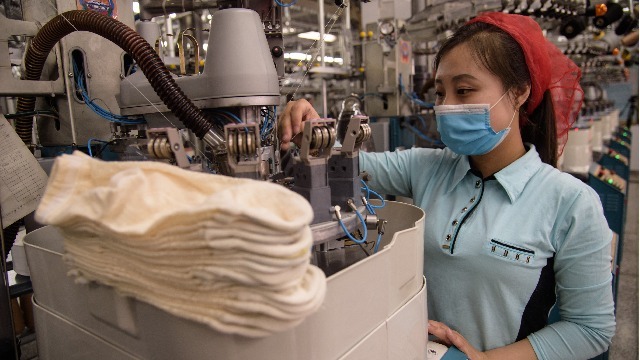According to people with knowledge of the situation, many North Koreans working in or who have business with China are among those who have succumbed amidst the massive resurgence of SARS-CoV-2 throughout the country in recent months, Vision Times has learned.
While crossing the border between the two communist states is risky and trespassers face severe punishment if caught, many North Koreans nonetheless make the trip due to the extremely harsh political and economic hardships they face at home. Trade with China is also an important lifeline for the impoverished North Korean regime, a nuclear-armed dictatorship that has icy relations with most countries.
For this reason, Pyongyang tacitly allows and makes use of its citizens working abroad despite continuing to keep a strict handle on its 25 million citizens.
- North Korean Women ‘Rented’ to China for Work Disappear From Shanghai Dorm, Presumed Defected: Report
- Kim Jong Un Oversees Latest North Korean Nuclear Missile Test, Brings Daughter to Launch Site
Most of those who have fallen ill or died are North Korean workers resident in China’s northeastern provinces. In particular, Jilin has a large ethnic Korean community that has provided more opportunities — even if suppressed by the Chinese Communist Party (CCP) — for escapees.
According to the sources, at least 10 North Korean workers in Northeast China, including in Liaoning and Jilin provinces, died this month after suffering symptoms consistent with COVID-19. The deceased were employed at clothes factories or electronic goods plants, and are believed to have contracted the virus at their dormitories.
Success
You are now signed up for our newsletter
Success
Check your email to complete sign up
North Korean workers already live in a “closed-loop” setup that was developed under the CCP’s “zero-COVID” policy, restricting their movements between factories and dormitories. But the Korean communist cadres who manage the workers have relatively greater freedom of movement, so it is very likely that they contracted the virus through them, per the sources.
Contributing to the infected workers’ deaths in recent weeks was the fact that they could not receive hospital treatment, and were not even able to buy antipyretics and other medicine.
In addition, the sources say that an official from North Korea’s Ministry of Foreign Affairs died from the SARS-CoV-2 virus, something that darkened the atmosphere among Pyongyang’s consular staff in China. The official, a man in his 60s, had no underlying conditions becoming falling seriously ill and succumbing to his symptoms.
In December, the Korean Workers Party (KWP) held its sixth plenary session of the 8th KWP Central Committee. According to a plan decided at the meeting that went into effect on Jan. 1, North Korean trade representatives in China must make weekly or twice-a-week visits to North Korea’s consulates in the country to submit reports, earnings, or handle other matters.
The totalitarian rule of the KWP predisposes it to heavy-handed and often contradictory policies. Following the initial 2019 outbreak of the novel coronavirus in Wuhan, central China, North Korean authorities closed off the Sino-Korean border and even attempted to construct a wall between the two countries. However, trade eventually resumed as the pandemic dragged on.
Pyongyang refused to acknowledge any cases of COVID-19 for more than two years, preferring to say that millions of North Koreans had simply gotten fevers. It also imported large batches of Chinese-made vaccines, calling them “immortal potions of love.”
According to the sources, the North Korean government has not taken any steps to protect its people from the pandemic spreading in and from China. Because Chinese businesses and offices are running without restrictions, neither have the North Korean diplomats, businesspeople, or workers in China.
North Korea — officially the Democratic People’s Republic of Korea — has consulates in Shenyang, Hong Kong, and Dandong, which is on the Sino-Korean border. The DPRK also has an embassy in Beijing.
North Koreans who have died in recent weeks while in China are still waiting to be cremated. Long waits have been a common problem due to the massive number of daily deaths overloading the country’s furnaces and funeral parlors.

















